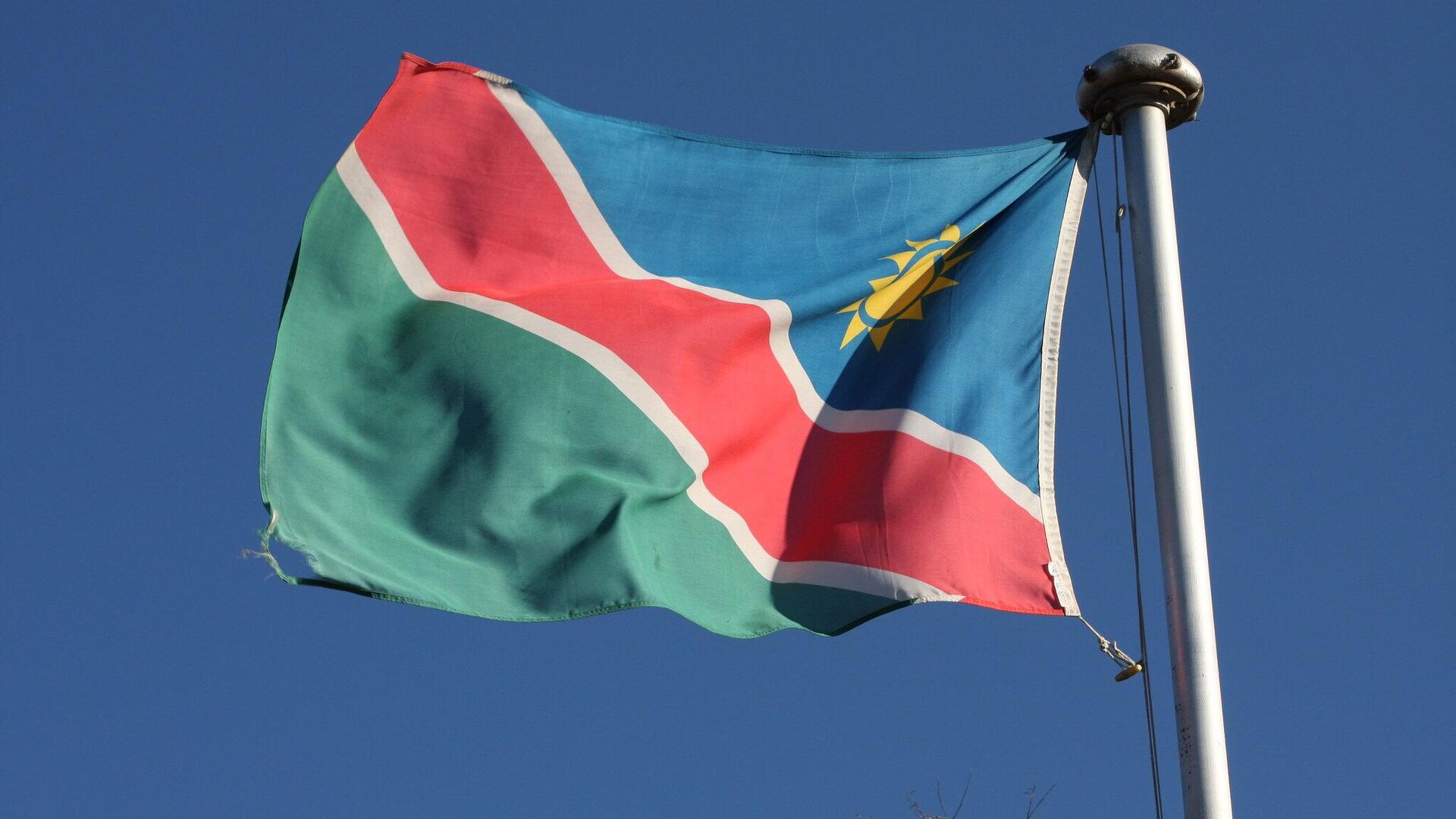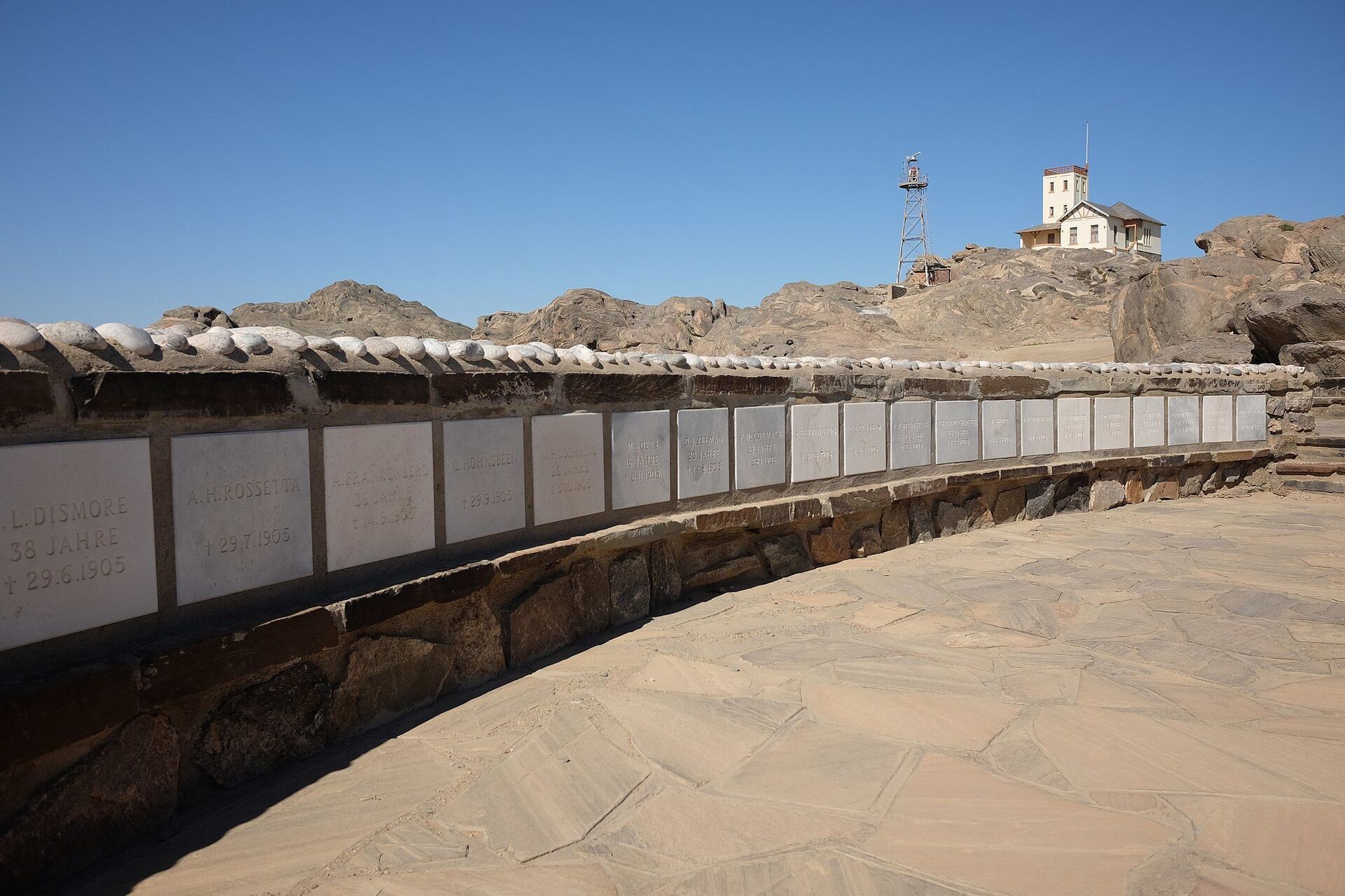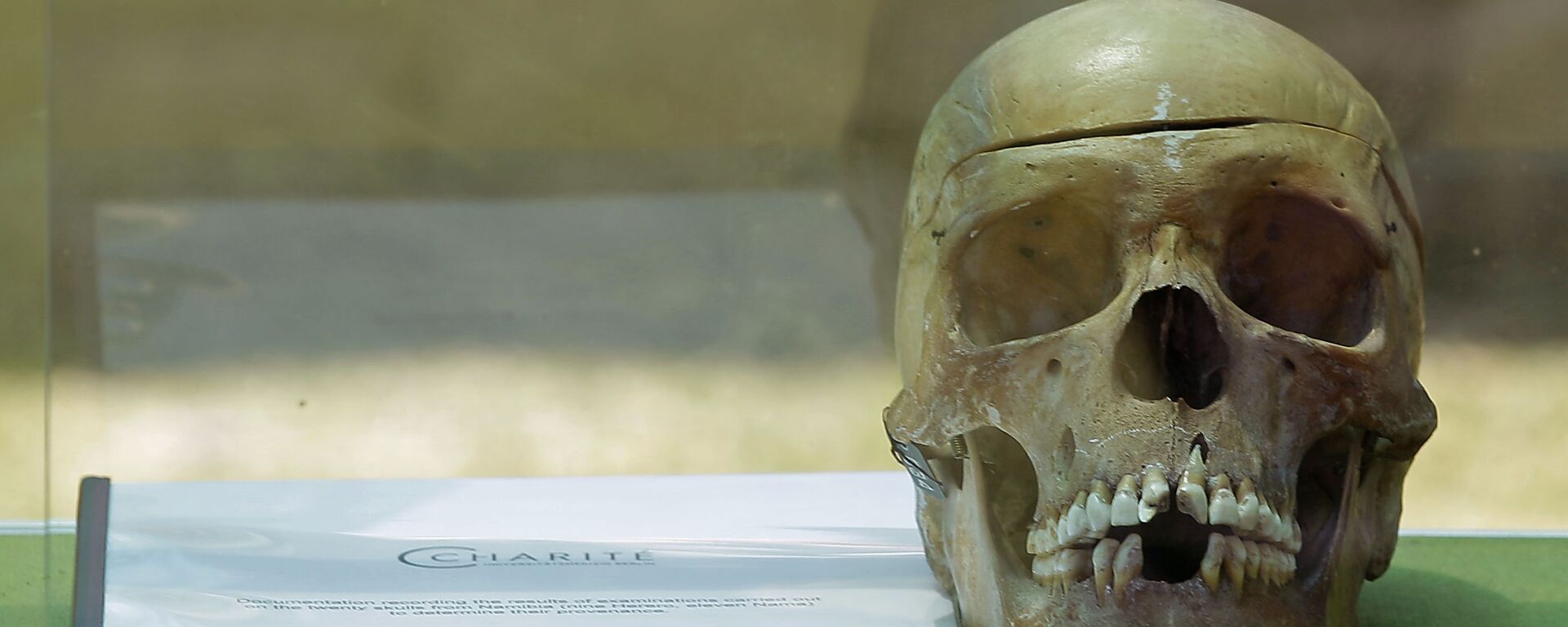Namibian Opposition Demands Genocide Recognition Deal With Germany be ‘Renegotiated’
20:09 GMT 14.09.2022 (Updated: 15:34 GMT 16.01.2023)

© Flickr / Alex Smith
Subscribe
The leader of the opposition in the Namibian parliament has written a letter to the German foreign ministry insisting that negotiations for payments in recognition of Berlin’s colonial genocide in the country be redone with input from the affected communities.
McHenry Venaani, leader of the People's Democratic Movement (PDM), has written a letter to German Foreign Minister Annalena Baerbock asking for the $1.3 billion settlement to be "renegotiated" and "restructured,” Deutsche Welle reported.
"There are descendants of genocide victims living in Botswana and South Africa - and they are left to fend for themselves," he told the German state-owned outlet. He said that representatives from organizations of the two tribes targeted for extermination, the Ovaherero Traditional Authority (OTA) and the Nama Traditional Leaders Association (NTLA), were not included in the talks.
"Reparations have not been recognized as a consequence of the admission of genocide," Venaani said, according to AFP, calling on Germany "to come back to the negotiating table and rework an agreement that would satisfy both groups.”
"It seems like this issue in Germany is only about gaining political power," OGF chairman Nandiuasora Mazeingo also told DW. "But we will outlast these governments because we are on the right side of history!"
"We are not going to sign a sham agreement that makes Germany look good on the international stage," Mazeingo added.
Venaani told DW he wants a clear, legal recognition of the genocide, and to push for both a larger monetary sum as well as “a package that will sustainably improve the socio-economic conditions of the affected communities.” That could also include a formal apology from Berlin.
The German foreign ministry told DW it doesn’t reply to open letters. Last week, Berlin rejected appeals for new negotiations.
‘Fake Genocide Deal’
The deal was agreed to by the German and Namibian governments in May 2021, the product of six years of negotiations, in which the German government will admit that it carried out a genocide in Namibia while the country was a German colony in the early 20th century, and will pay out a $1.22 billion settlement over the next 30 years, amounting to $40.67 million per year.
However, it was almost immediately rejected by representatives from the Ovaherero and Nama tribes, who said that the cash settlement was inadequate in terms of both the amount and the failure to address the entire scope of outcomes from the killings and land evictions.

Shark Island, Lüderitz, Namibia. Formerly an island, it is now a peninsula. It was the home of the Shark Island Concentration Camp between 1905 and April 1907, as part of the Herero and Namaqua genocide of 1904–1908.
The tribes have also accused their own government, led by the South West Africa People's Organisation (SWAPO), of failing to take their considerations into account. SWAPO is dominated by the Ovambo people, who were not targets of the German massacres. In September of last year, protesters stormed the Namibian parliament demanding the deal be rejected, which they called “the fake genocide deal.”
Lasting Legacy of Colonialism
Germany claimed the territory of Namibia for itself in 1884, calling it “German South West Africa,” and settlers poured into the arid land, coming into conflict with local tribes like the Herero and Nama. In 1904, several tribes launched a joint revolt against German land seizures and plans to force them into reservations, and the German response was devastating. German commander Lothar von Trotha, who was sent to crush the uprising, ordered that “every Herero, with or without rifles, with or without cattle, will be shot,” giving a similar order for the Nama people the following year.
The German colonial forces drove the African tribes off their lands and into the harsh deserts of the interior, sealing off their wells and watering holes to stop them from returning. Those who survived the desert were put into concentration camps and used as slave labor, where many more died. In the end, 80% of the 100,000-strong Herero people and 50% of the 10,000-strong Nama people had been killed by 1908.
After World War I, the territory was ceded to the victorious United Kingdom and became a colony of South Africa, being subjected to the same apartheid white supremacist system as the rest of the country. However, SWAPO led an insurgency against South African rule and secured independence for Namibia in 1990, as South Africa’s invasion of neighboring Angola collapsed and the anti-apartheid movement inside South Africa grew stronger. White Apartheid rule in South Africa ended just four years later, in 1994.
SWAPO has been the ruling party ever since and has overseen attempts at reforming land ownership and the legal code. However, the country’s colonial legacy persists in many ways, including in the distribution of wealth: white descendants of German and South African settlers constitute just 6% of Namibia’s population but hold roughly 80% of its wealth, including 72% of all agricultural land.




